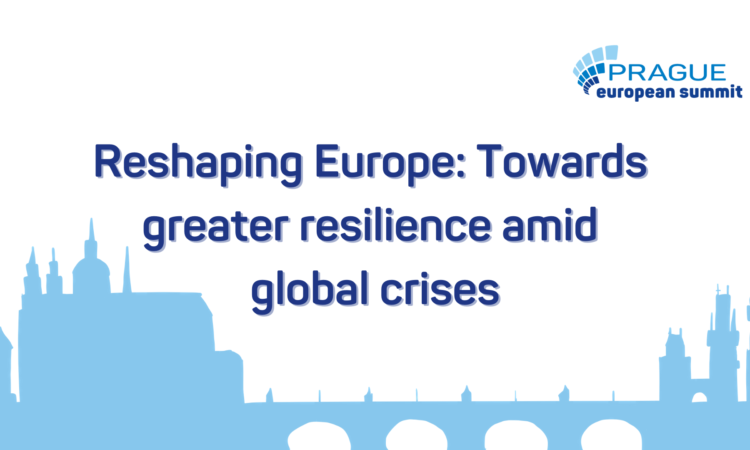Reshaping Europe: Towards greater resilience amid global crises

This year’s Prague European Summit will present three interlocking thematic circles:
ECONOMIC RESILIENCE: The Twin Transformation of the European Economy
The past months and years, filled with a multitude of crises, highlighted the need for Europe to undergo both green and digital transformation of its economy. This continuous process aims to build on the progress made, which manifests, for example, in the European Single Market. It also strives to make the European economy more resilient vis-à-vis the global challenges it faces, particularly by strengthening sustainable supply chains of raw materials.
However, achieving climate neutrality, building European competitiveness and adapting to technological progress, such as artificial intelligence, do not come without significant risks that must be addressed. There are legitimate concerns of over-dependence on one or too few states while at the same time being aware of Europe´s position as a champion of free trade, rules-based order and global cooperation in tackling the challenges of today and tomorrow.
POLITICAL RESILIENCE: The Future of European Governance
The return of a full-scale war to the European continent touches upon many aspects of the core functioning of the EU. It highlighted the importance of consensus building in the decision-making process and brought a constructive voice of some regions – such as the Central and Eastern Europe – to the fore. Across Europe, regional cooperation formats are also growing in importance, with small and medium-sized member states bringing fresh perspectives to various EU policies and agendas, including the transformation.
The economic stresses in the form of energy strains and higher inflation also brought into focus the social cohesion of the EU, as well as the danger of populism and illiberal tendencies in some of its member states.
The question of European governance also pertains to potential EU enlargement, notably after Ukraine, Moldova and Bosnia and Herzegovina gained candidate status. The enlargement process requires the preparedness of countries seeking membership but, foremost, the EU’s capacity to integrate new members while securing its effective functioning and further development.
FORWARD RESILIENCE: The EU as a Geopolitical Actor
The unprovoked Russian aggression on Ukraine, its global political fallout and the remnants of protectionist tendencies from the pandemic once again raise the issue of whether Europe is a global actor and has a role to play on the worldwide stage. Attempts have been made to create a broader platform for European dialogue, for example, via establishing the European Political Community. The invasion of Ukraine showed the vulnerability of the liberal world order and underscored the importance of alliances and global cooperation. It also revived the debates around European security structures in both the traditional sense and the newer cyber and hybrid threats.
The EU also entered the “battle of offers” as it engages in the Global South, Indo-Pacific region or Latin America, where it competes with China and Russia. In a world with increasing strength of revisionist actors, the EU strives for an independent voice while maintaining close transatlantic ties.